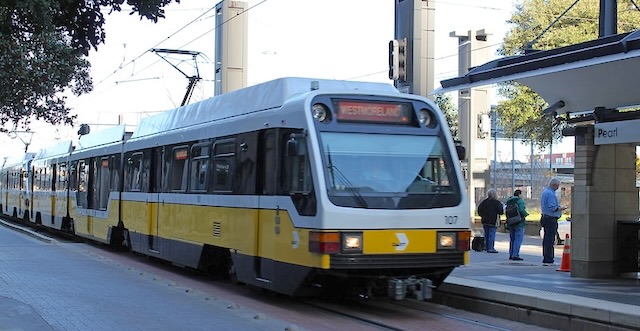As of June, the Dallas Area not-so-Rapid Transit (DART) was carrying 80 percent of pre-pandemic riders, a little more than the national average of 75 percent. The decrease in ridership has minimal effect on its budget, since in 2019 fares covered less than 12 percent of operating costs. Still, officials of several cities in the region whose taxpayers are supporting DART are beginning to wonder why they are spending so much money and getting so little.
DART has spent more than $5.5 billion ($8.0 billion in today’s dollars) in capital costs building a light-rail system that has done very little for the region’s transit ridership. Photo by Jeffrey Beall.
DART is primarily funded out of a 1 percent sales tax levied on residents of 13 cities served by the agency. Since early July, the city councils of six of those cities have voted to reduce the sales tax going to DART by 25 percent, and the city councils of Dallas and at least one other city are considering similar resolutions. The tax is levied by DART, not the cities, so the votes are more symbolic of general dissatisfaction with how DART is run. To actually reduce the tax, the DART board would have to put a measure on the ballot and residents of each of the 13 cities would decide. Continue reading








